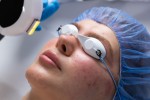Introduction
Bariatric surgery is a significant step toward achieving long-term weight loss and improving overall health. Proper nutrition is crucial both before and after the surgery to ensure successful outcomes. This article provides comprehensive nutritional recommendations for those undergoing bariatric surgery.
Pre-Surgery Nutrition
Proper nutrition before bariatric surgery is essential to prepare your body for the procedure and enhance recovery:
- Balanced Diet: Focus on a balanced diet rich in proteins, healthy fats, and complex carbohydrates. Include plenty of vegetables, fruits, lean meats, fish, whole grains, and legumes.
- Hydration: Stay well-hydrated by drinking at least 64 ounces of water daily. Avoid sugary drinks and alcohol.
- Protein Intake: Increase your protein intake to help preserve muscle mass. Aim for at least 60-80 grams of protein per day.
- Vitamins and Minerals: Ensure adequate intake of essential vitamins and minerals. Consider taking a multivitamin supplement as recommended by your healthcare provider.
- Weight Loss: If advised by your surgeon, aim to lose some weight before surgery. This will help reduce liver size and make the procedure safer and more effective.
Post-Surgery Nutrition
After bariatric surgery, your diet will change significantly to accommodate your new digestive system and promote healing:
- Liquid Diet: For the first few days post-surgery, you will be on a clear liquid diet. This includes water, broth, sugar-free gelatin, and decaffeinated beverages.
- Pureed Foods: After the initial liquid phase, transition to pureed foods for about two weeks. Include foods like blended soups, smooth yoghurt, and pureed vegetables and fruits.
- Soft Foods: Gradually introduce soft foods. Such as scrambled eggs, soft-cooked vegetables, canned fruits, and tender meats. This phase typically lasts about two weeks.
- Solid Foods: After the soft food phase, you can start eating solid foods. Focus on nutrient-dense options, and avoid foods high in sugar, fat, and empty calories.
Long-Term Nutritional Guidelines
Long-term nutritional habits are essential for maintaining weight loss and overall health after bariatric surgery:
- Protein Focus: Prioritise protein at every meal to support muscle mass and satiety. Aim for at least 60-80 grams of protein daily.
- Small, Frequent Meals: Eat 5-6 small meals throughout the day. Avoid overwhelming your smaller stomach and to keep energy levels steady.
- Chew Thoroughly: Chew food thoroughly to aid digestion and prevent blockages in your digestive tract.
- Hydration: Continue to drink plenty of water. But avoid drinking fluids with meals to prevent stretching your stomach pouch.
- Avoiding Problem Foods: Steer clear of foods that are difficult to digest or may cause discomfort. Tough meats, bread, rice, carbonated drinks, and sugary snacks should be avoided.
Supplements
After bariatric surgery, supplements are often necessary due to reduced food intake and changes in absorption. Consider taking a supplement as recommended by your healthcare provider.
- Multivitamins: Take a high-quality multivitamin daily to prevent deficiencies.
- Calcium and Vitamin D: Ensure adequate calcium and vitamin D intake to support bone health.
- Iron: Women of childbearing age and those at risk of anaemia should take an iron supplement. As recommended by their healthcare provider.
- Vitamin B12: Regular vitamin B12 supplements or injections may be necessary to prevent deficiency due to reduced absorption.
Monitoring and Support
Regular monitoring and support are crucial for long-term success:
- Follow-Up Appointments: Attend all scheduled follow-up appointments with your surgeon and dietitian. Monitor progress and address any nutritional concerns.
- Support Groups: Join support groups for bariatric surgery patients to share experiences, gain motivation, and receive guidance.
- Regular Blood Tests: Periodic blood tests are necessary to check for deficiencies and ensure you are meeting your nutritional needs.
Conclusion
Proper nutrition is essential before and after bariatric surgery. It ensures successful weight loss and overall health. Follow these nutritional recommendations and work closely with your healthcare team to achieve and maintain the benefits of bariatric surgery. Remember to focus on a balanced diet and adequate protein intake. Proper hydration, and necessary supplements can also support your journey.
For information on Bariatric surgery, please visit the ACIBADEM Beauty Center Obesity Surgery page.
Frequently Asked Questions
Protein helps preserve muscle mass, supports healing, and keeps you feeling full. This is crucial for weight loss and recovery.
Avoid foods that are hard to digest, high in sugar, fat, and empty calories. Such as tough meats, bread, rice, carbonated drinks, and sugary snacks.
Drink at least 64 ounces of water daily. Avoid drinking fluids with meals to prevent stretching your stomach pouch.
Yes, supplements like multivitamins, calcium, vitamin D, iron, and vitamin B12 are often necessary. This is due to reduced food intake and absorption changes.
Regular follow-up appointments with your surgeon and dietitian are essential. This monitors progress and addresses any nutritional concerns.













